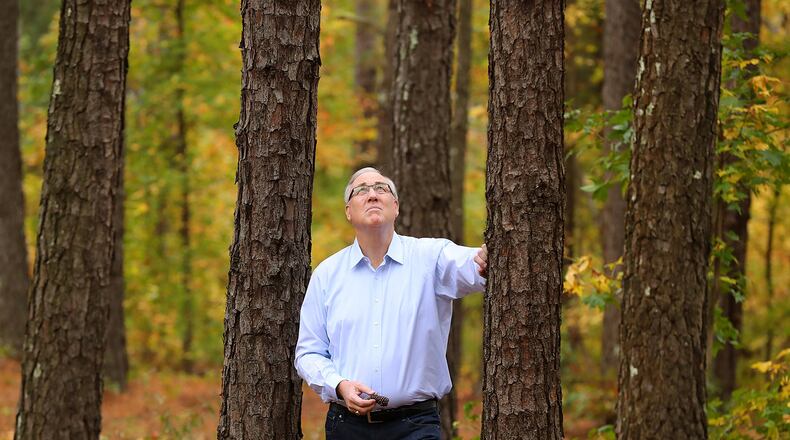Trees have been Blake Sullivan’s business for more than three decades, mostly as a manager of forestland.
“I’m kind of like an orchestra leader,” he said. Landowners “tell me what they need to do with their land. They tell me their goals.”
It’s not enough to simply stand back, not when those goals are human-made or when value is shaped by the market, he said.
Sullivan generally likes the idea of a having a wide market. He supports the North American Free Trade Agreement but says it needs a little work. Porous and tariff-free borders work for commerce — if everyone plays fair, he said.
“In my opinion, NAFTA has been good for our country — without a doubt,” he said. “I am all for competition. I can compete with Canada.”
The problem, he said, is that the Canadian government subsidizes its industry, which can then undercut the price of unsubsidized American timber. “The United States plays fair on trade,” he said. “The rest of the world plays to win.”
A tilted playing field has meant money trouble for family farms in Georgia and elsewhere, which can lead to poor land management or even financial failure, he said.
This is not a new allegation. The issue has been raised a number of times, claims consistently rejected by the Canadians. Which leads naturally to the avenue set up for litigating this kind of controversy — and that is the more fundamental complaint.
NAFTA builds a bias into its process for resolving disputes, using a panel that may include no Americans and allowing virtually no appeal, Sullivan said. “We’ve given them authority to interpret the rules,” he said, “and there is no recourse in U.S. trade courts.”
Renegotiating NAFTA is the only way to revise the rules to make for a more just market, he said. “The panels should be experts, and they should be subject to U.S. oversight,” he said. “And if challenged, the decision needs to go eventually to a U.S. court.”
About the Author
Keep Reading
The Latest
Featured





